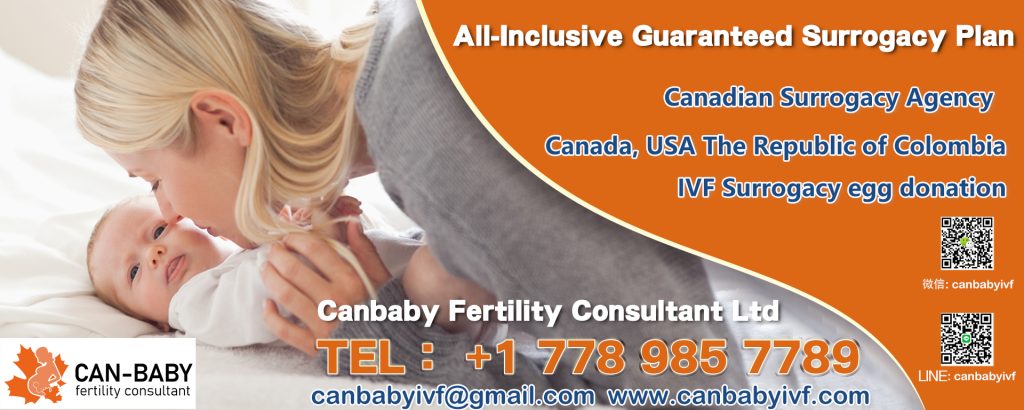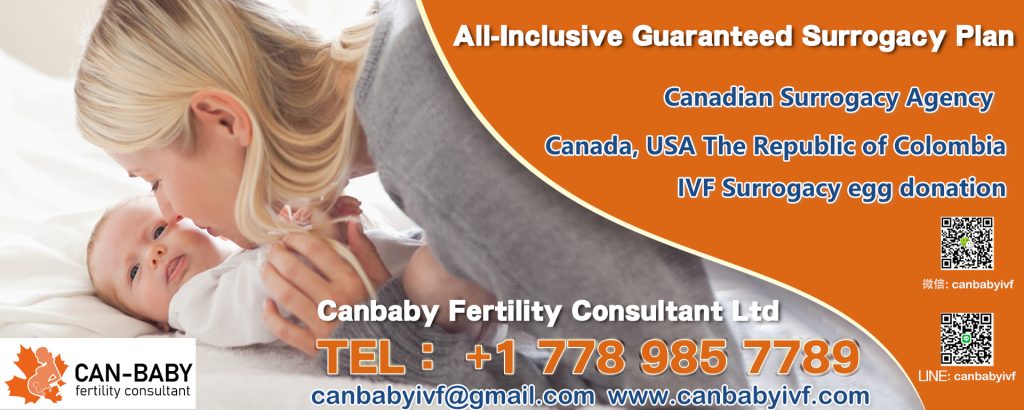Disclaimer: This article is an original work by Canbaby Fertility Consultant LTD, a Canadian surrogacy consulting company. Reproduction or redistribution without permission is strictly prohibited.

Your Complete 2025 Guide for Canadian Intended Parents
As more Canadian intended parents turn to international surrogacy to start or grow their families, one of the most pressing and emotionally charged questions they face is: How can I bring my baby born through surrogacy abroad back to Canada legally and safely?
The answer involves a complex but manageable process that includes citizenship applications, travel documentation, and clear communication with both the foreign country and Canadian immigration authorities. In this guide, we’ll walk you through everything you need to know, from legal steps to expected timelines, documentation, and practical tips for bringing your baby home to Canada.
Why Canadians Choose International Surrogacy
Due to strict legal restrictions around commercial surrogacy in Canada, many intended parents—especially single men, LGBTQ+ couples, and those with urgent fertility needs—seek surrogacy options abroad. Countries such as the United States, Georgia, Colombia, and Mexico have become popular destinations due to their surrogacy-friendly laws, structured contracts, and reliable medical systems.
However, bringing a baby born abroad to Canada through surrogacy isn’t as simple as buying a plane ticket. It requires navigating immigration law, citizenship applications, and sometimes long waits for documentation.
Step 1: Determine the Baby’s Citizenship Eligibility
The first step is to determine whether your child is automatically a Canadian citizen at birth. There are two main scenarios:
✅ Scenario A: At least one parent is a Canadian citizen (non-naturalized)
If at least one of the intended parents is a Canadian citizen by birth or naturalization, the child may be eligible for Canadian citizenship by descent, even if born outside of Canada.
❌ Scenario B: Canadian parent was also born abroad
If the Canadian parent was also born outside of Canada, and you are the second generation born abroad, your child is not eligible for citizenship by descent. In this case, you must sponsor the child for permanent residency via family class immigration.
Step 2: Apply for a Canadian Citizenship Certificate or PR
▶ If Your Baby Qualifies for Citizenship (Scenario A):
You will need to apply for a Canadian Citizenship Certificate for the baby. This process is handled by Immigration, Refugees and Citizenship Canada (IRCC) and usually includes:
- A complete application form
- Proof of parent’s Canadian citizenship (e.g., Canadian passport, citizenship certificate)
- Baby’s foreign birth certificate (translated if necessary)
- DNA testing (may be requested in some cases)
- Legal surrogacy agreement and supporting documentation
📌 Processing Time (as
of 2025):
Typically 2–6 months, though timelines vary by country and complexity.
▶ If Your Baby Does Not Qualify for Citizenship (Scenario B):
You must sponsor your child for permanent residence (PR) through the Family Class program:
- Submit a Sponsorship and PR application
- Include a surrogacy explanation letter
- Birth certificate and supporting documents
- DNA testing (mandatory)
- Immigration medical exam for the baby
📌 Processing Time (as
of 2025):
8–12 months, potentially longer depending on IRCC backlogs.
Step 3: Obtain the Baby’s Travel Document
Once citizenship or PR is confirmed, you’ll need a Canadian passport or travel document for the baby.
▶ For Citizens:
Apply for a Canadian passport from the nearest Canadian consulate or embassy abroad.
▶ For Permanent Residents:
Apply for a single-use travel document to allow the baby to enter Canada. Once in Canada, you can apply for a PR card.
📌 Tip: Processing times can vary depending on embassy staffing and local delays. Prepare to stay in the foreign country for several weeks or months after birth while awaiting documentation.
Step 4: Prepare Documents in Advance
Many delays and problems occur because of missing or incomplete paperwork. To avoid setbacks:
- Prepare your legal surrogacy agreement, signed and notarized
- Get pre-birth orders or parentage judgments in the foreign country, if applicable
- Translate all documents into English or French (if not already)
- Keep digital and hard copies of everything
- Arrange for DNA testing early if required
📌 Pro Tip: Work with a Canadian immigration lawyer or surrogacy agency familiar with cross-border surrogacy to streamline this step.
Step 5: Return to Canada with Your Baby
Once you receive the child’s Canadian passport or travel document, you’re legally permitted to return to Canada. Upon arrival, Canadian Border Services (CBSA) may ask for:
- Baby’s passport or travel document
- Your identification and relationship to the baby
- Citizenship certificate or PR confirmation letter
- Legal surrogacy agreement (optional but helpful)
Your child’s legal parentage in Canada will follow provincial laws, such as BC’s Family Law Act, which may require you to register the child’s birth or obtain a parentage declaration, especially if the surrogate’s name is on the foreign birth certificate.
How Long Will You Be Abroad?
This is one of the most common and frustrating concerns for Canadian intended parents. While every case is different, you can expect to stay in the country where the baby is born for:
- United States: 3–6 weeks (passport can be expedited)
- Georgia or Colombia: 6–12 weeks
- Mexico: 6–16 weeks, depending on embassy processing times
The timeline depends on how fast:
- The birth certificate is issued
- DNA testing (if needed) is done
- Citizenship/PR is granted
- Passport/travel document is issued
Plan your trip with flexibility and expect delays. Bring sufficient support and supplies, especially for long international stays.
What If You’re Using Donor Gametes?
When using egg or sperm donors, IRCC may require additional evidence of your genetic relationship to the baby. In such cases:
- DNA testing between the Canadian biological parent and the baby is usually required
- If no biological link exists (e.g., embryo donation or both gametes donated), the baby must be sponsored through permanent residence
Make sure to disclose the use of donors truthfully in all applications. False or incomplete information can cause major legal complications.
Special Note for LGBTQ+ Families
Canada recognizes same-sex parents equally under the law. However, some foreign countries do not, and only one parent’s name may appear on the foreign birth certificate. In this case:
- Canadian parent can apply for citizenship/PR
- Upon return, you can apply for an amended birth certificate or parentage declaration in Canada to recognize both parents
Summary Checklist: Documents You’ll Likely Need
| Document | Purpose |
| Legal surrogacy agreement | Prove intent and parentage |
| Foreign birth certificate | Prove child’s birth and identity |
| DNA test results | Establish biological link (if required) |
| Proof of Canadian citizenship | For at least one parent |
| Passport or travel document | For re-entry to Canada |
| Translation certificates | If documents are not in English/French |
Final Tips
- Start early: Begin preparing your paperwork well before the birth
- Hire professionals: Use immigration lawyers and surrogacy coordinators
- Stay flexible: Be prepared for long stays and administrative delays
- Keep everything organized: Paper and digital files are both essential
- Document everything: Photos, contracts, receipts, even conversations may help if challenges arise
Conclusion: Your Baby’s Journey Home Is Worth It
Bringing a baby born via international surrogacy back to Canada involves patience, planning, and persistence—but thousands of Canadian families have done it successfully. With proper legal documentation and professional guidance, your baby’s transition home can be safe, smooth, and secure.
If you’re considering international surrogacy, consult with a trusted agency and Canadian immigration expert to ensure your baby’s citizenship or PR process starts smoothly—long before birth.
Your child’s first journey home may be across borders, but with the right help, it will also be full of joy, legality, and love.
SEO
Canada surrogacy, Canadian citizenship surrogate baby, how to bring surrogate baby to Canada, international surrogacy Canada, surrogacy baby citizenship Canada, immigration for surrogate child, surrogacy abroad Canadian parents, Canadian surrogate baby travel
Would you like this formatted as a blog post or made into a YouTube script as well?

